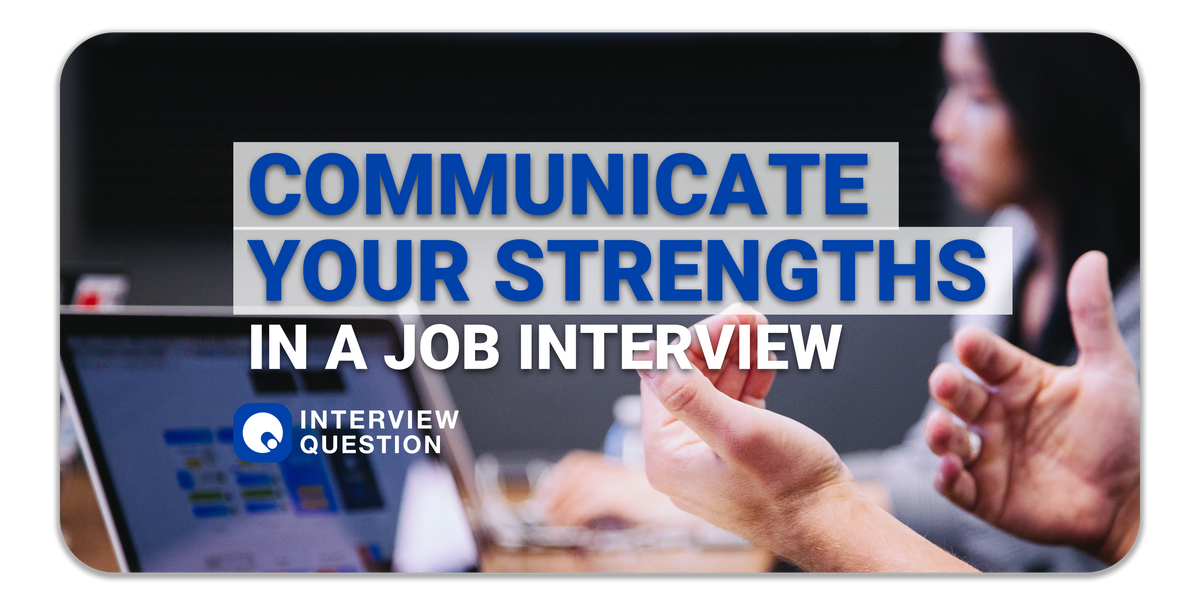How to Communicate Your Strengths in an Interview Successfully
In a job interview, it is essential to communicate your strengths in order to be successful. Check out this guide on how to communicate your strengths successfully and make a great impression.

In any interview, whether for a new job or a promotion, you will be asked about your strengths. This is your opportunity to sell yourself to the interviewer and demonstrate why you are the best candidate for the position. However, many people freeze up when asked this question. They either don’t know how to answer it, or they give a generic answer that doesn’t really say anything.
If you want to stand out from the crowd and increase your chances of getting the job, you need to learn how to communicate your strengths in an interview successfully.
Know Your Strengths
The first step is obviously knowing what your strengths are. Take some time before the interview to sit down and make a list of all of your positive qualities, both professional and personal.
Here are some specific examples of workplace strengths to get you started:
- Confident at inspiring poor-performing team members to improve and spin their weakness into a strength
- Able to keep tasks prioritised and work organised
- Handle multiple projects at once without being overwhelmed
- Strong at public speaking without being nervous in a televised interview or in front of a large audience
- Jump into a new department, adapt and learn quickly
- Co-ordinate work delegated to colleagues have arranged their job to be flexi-hours
- Firm at leading a team and ensuring other people perform in their jobs well
Once you have them all written down, choose 3-5 that would be most relevant for the position you’re interviewing for. These are the strengths you should focus on communicating during the interview process.
Be Specific
When talking about your strengths in an interview, it’s important to be as specific as possible. Don’t just say “I’m a good leader” or “I work well under pressure." Instead, give concrete examples that illustrate these qualities.
For instance: “I was able to take charge and lead my team through our busiest period ever without missing a beat" or "When our project was behind schedule, I took charge and worked tirelessly until we got back on track."
By being specific, you give the interviewer confidence that you really do have these skills and qualities – which makes them more likely than ever want hire (or promote) you!
Tie Your Strengths Into The Job Requirements
Another way to communicate your strengths effectively is by tying them into what this particular job requires. So if one of their key requirements is “ability work independently," talk about how one of your greatest strength is exactly that – being able handle projects solo with minimal supervision needed from others . Not only does this show off YOUR strength; but it also demonstrates HOW it can benefit THEM specifically – making it even more likely they'll want hire (or promote) YOU!
Use Positive Language
Finally, remember use positive language throughout entire conversation - especially when discussing past experiences . For example instead saying " I didn't get along my previous boss" rephrase negative-sounding statements into something like " I learned valuable lesson managing different types personalities."
By using positive language, not only will come across more confident individual ; but also leave potential employer feeling good too ! And after all , who doesn't want work someone who makes THEM feel good ?
If You Can't Communicate Your Strengths, You Won't Get the Job
Your resume may look great and your references may be solid, but if you can't articulate why you're the best candidate for the position during an interview, you likely won't get hired.
Your potential employer is not going to waste their time trying to figure out what makes you tick - they'll just move on to the next candidate.
So before you walk into that interview, take some time to really think about what sets you apart from the competition and how best to articulate it. With a little preparation, you can make sure that your communication skills are up to snuff and land the job of your dreams.
Conclusion
In order to communicate your strengths in an interview successfully, always be prepared with specific examples of times when you have utilized your strengths to achieve success. Be confident in sharing your successes and be sure to highlight how your strengths were integral to the outcome. Finally, practice communicating your strengths so that you are able to do so confidently and effectively in an interview setting.
By following these steps, you will be able to showcase your unique talents and abilities, impressing potential employers and increasing your chances of landing the job.
